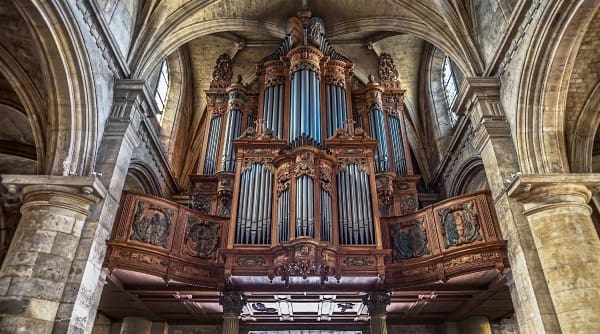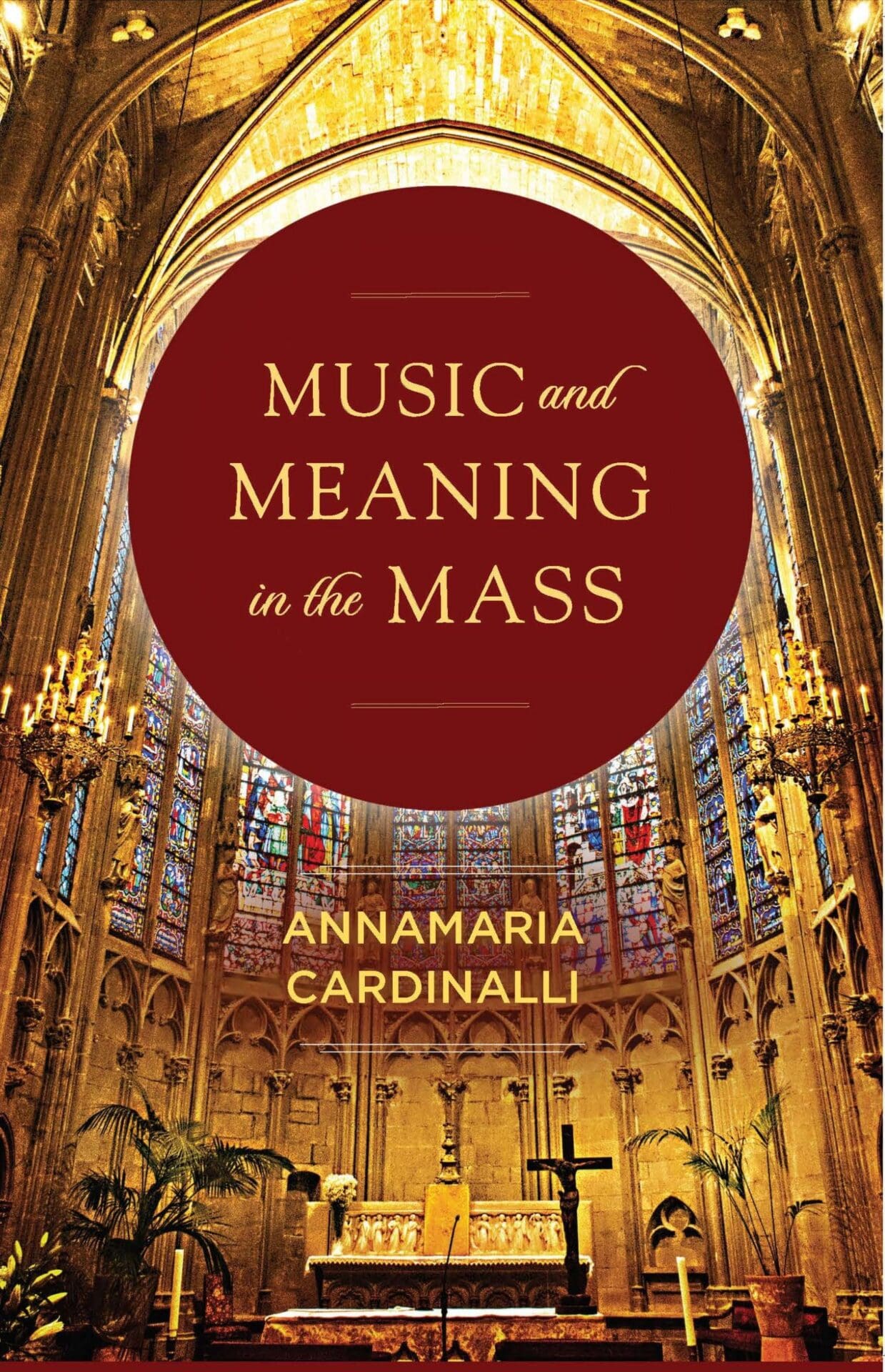This danger cannot be overstated. One might wonder why, in a time of grave and tragic crisis in the Catholic Church and in the world, a point about liturgical music would be given such weight. To wonder this, however, is almost to forget what it is that happens at the Mass. Forgetting that is to forget Christ Himself, which is precisely the reason we find ourselves in a moral mess.
Let’s take one step back and ask ourselves: Why is music a part of Mass in the first place? Is it because Mass is a long hour full of droning readings, talks, and empty rote actions that must be periodically livened up by a little entertainment? The obvious answer is a wildly emphatic NO!
The responses of the Mass, the parts that are sung in union with the angels themselves (Luke 2:14; Isaiah 6:3) as the veil of time is ripped away and we stand in awe of Christ’s very literal gift of self, are not there for our distraction. The musical responses are the almost-incomprehensible opportunity for us to participate in the event of greatest cosmic significance that has ever occurred — Christ’s sacrifice — as He Himself becomes truly and physically present on the altar. If we have forgotten this, we have forgotten what it means to be Catholic, and liturgical music that has lied to us may be in great part to blame.
It is unfathomable enough that our physical senses deceive us when we behold Jesus in the Eucharist. He looks, tastes, smells, and feels like bread and wine. At least our ears should affirm the sacred Truth.
In order to be truthful, our responses at Mass need to employ, rather than ignore, the profoundly influential language of music to sound like what they mean.
If they do not do this, it is better for us simply to speak the responses truthfully than to sing them with our fingers musically crossed behind our backs, so to speak. If we sing, “Lord, have mercy,” it had better sound like we are imploring God for just that, not asking to be tossed peanuts at a baseball game. “Holy, holy, holy” had better imply to the listener that He who is drawing near is in fact truly, inconceivably so.
When asked to choose the music to which you will walk down the main aisle of your church for your wedding, would you exclaim, “Oh, wouldn’t some indistinct and emotionally uninvolving elevator music be just perfect?” No! You would certainly choose music with meaning appropriate to the moment. When you are to walk down that same aisle to be even more intimately united with God Himself in the Eucharist, why on Earth would the importance of the music be less?
Consider the impact the musical choice would have on the onlooker. Consider someone who was questioning the Faith, or perhaps a non-Catholic observer. Consider a Catholic who, over many years, is exposed to contradiction in music to sacred texts and sacred realities. If such a person attended your wedding, at which elevator music was the selection for your procession, would they leave with the impression that something momentous had occurred?
+
This article is adapted from a chapter in Music and Meaning in the Mass by AnnaMariaCardinalli which is available from Sophia Institute Press.
Art for this post on Music: Cover and featured image used with permission.





